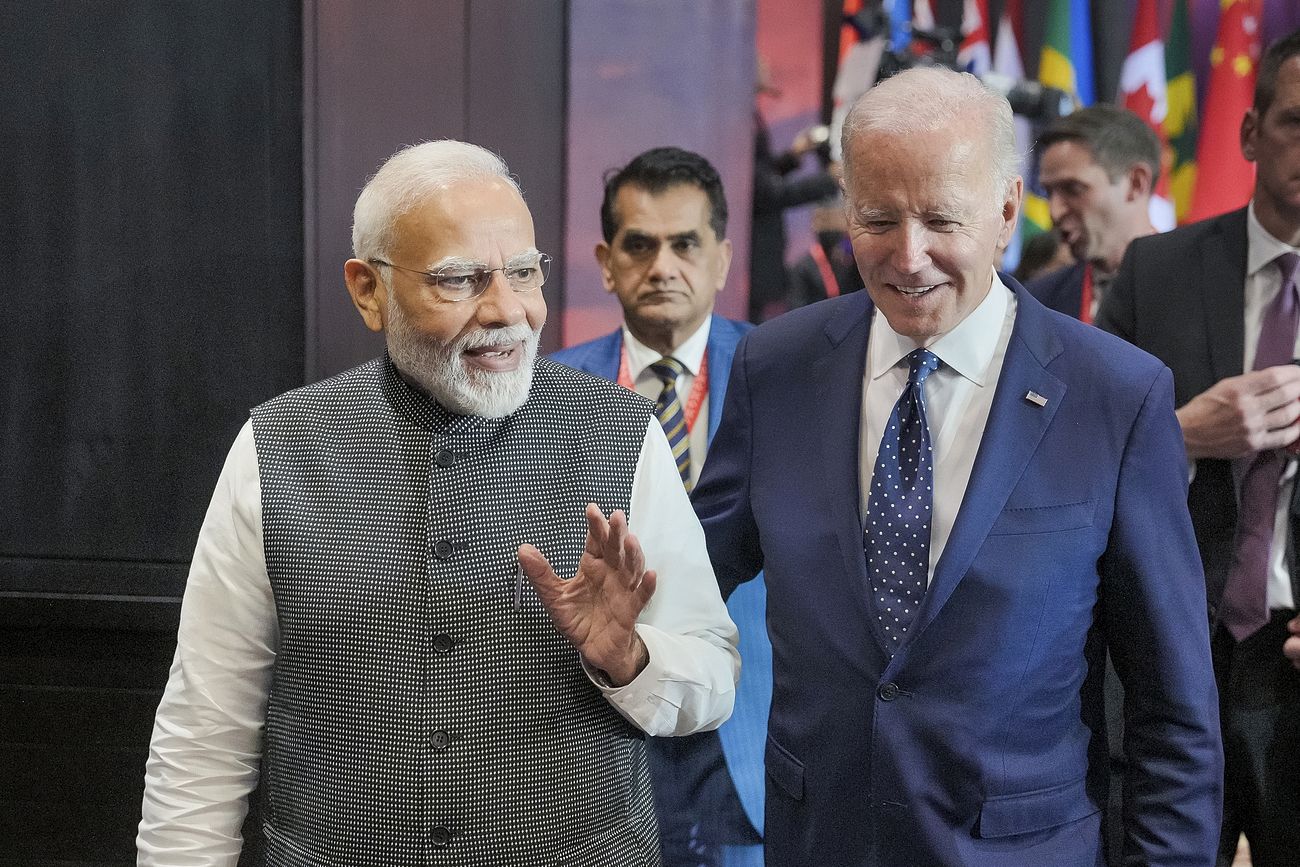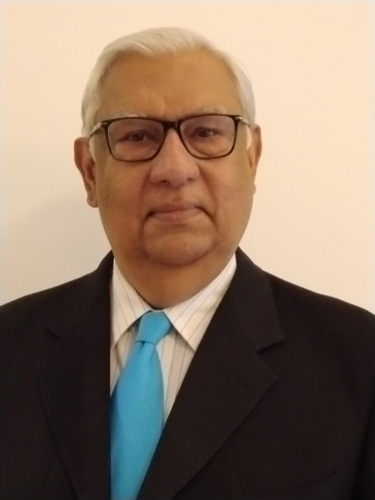India and the post G20 Summit World
Despite the absence of the Presidents of China and Russia who were represented by their Prime Minister and Foreign Minister respectively, the G20 Summit was a grand success by any yardstick. The summit followed India’s unique success in space exploration when Chandrayan-3 landed the Vikram lander and rolled out the Pragyan Rover on the moon’s southern pole, the first country to do so. Thereafter the Aditya L-1 mission to study the Sun was also successfully launched. A remarkable aspect of the Summit was the elaborate logistics and protocol arrangements and the collateral engagements with businesspersons, academia and think tanks which expanded the pool of stakeholders.
The highpoint of the Summit was the unanimous Delhi Declaration with its 85 paragraphs and 13,000 words. It is undoubtedly an important milestone. Considering the predictions of pundits that consensus will be elusive and wellnigh impossible, the unanimous declaration is an unparalleled diplomatic achievement. The Delhi Declaration charts a roadmap for incremental movement in the restructuring of the international order and tackling pressing global issues and setting norms for their solution. It was touch and go, given the deep chasm between the Western countries and the Russia-China bloc over the war in Ukraine. The consensus at the Bali declaration broke down within a month of the Summit in November 2022 and the acrimony between the West and the Russia-China bloc increased manifold. The G20 Bali Declaration, therefore, had to be modified. The consensus on the Delhi Declaration signalled India’s diplomatic success in drafting a language acceptable to all.
India’s diplomatic sweet spot
Geopolitically, India is in a sweet spot and this helped in curbing intentions of some member countries to scupper the Summit, by thwarting consensus and ending up with the “Chair’s Summary” which would have highlighted the lack of unanimity among the members. The West was caught in a bind. The choice was either to scupper the Summit Declaration and lose support of the Global South and alienate India, or to go along with the compromise language proposed by India. The Global South has suffered immensely from the COVID pandemic and because of the West’s geopolitical obsession with Russia, has undermined food and energy security for the Global South. The absence of President Xi from the Summit was also a contributing factor for the West to stand by India. G 20 wordsmiths drafting the declaration were able to finesse the Ukraine war, by not condemning Russia directly, which would have not been acceptable to India and some other countries.
India’s refrain about this is not an era of war remained a pivot on this issue. Yet the message in the 7 paragraphs on the Ukrainian issue called upon “all states must refrain from the threat or use of force to seek territorial acquisition against the territorial integrity and sovereignty or political independence of any state,” as well as “the use or threat of use of nuclear weapons is inadmissible.” The FM level meetings were unable to reach a consensus on the draft declaration and it had to be negotiated at the summit level which indicates that PM Modi’s effort in persuading Western leaders finally fructified. India made it clear that any condemnation of Russia will be unacceptable and it would rather not have declaration, if the West made it a sticking point. In this effort, PM Modi was supported by the leaders of Brazil and South Africa. India was, however, prepared to assert its commitment to the UN principles on respect for territorial integrity and national sovereignty or political independence.
There are several reasons for India’s successful handling of the Summit. India’s visibility on the global stage has increased with its fast growing economy which is on course to make India the 3rd largest one by 2030. PM Modi’s personal diplomacy with world leaders and cultivating close personal ties with Arab leaders has also contributed to this success. Moreover, India has navigated ties deftly, making sure that traditional ties with Russia remain intact. It has not gone unnoticed that many leading and successful global multinational companies are headed by CEOs of Indian origin in recognition of India’s talent. Indian’s championing of the Global South ensured the support of this large number of countries. The “Voice of the Global South” virtual Summit of 125 leaders of the countries of the Global South, held before the G20 Summit added heft to India’s efforts. Undoubtedly, the overwhelming mood in the Global South has consistently questioned the G7 and NATO obsession in defeating Russia militarily at the expense of the interests of developing countries.
The inclusion of the African Union [55 countries] in G20 and the recognition of the priorities of the Global South are significant developments. India’s role in making this happen is now globally acknowledged. The Delhi Declaration also lays down important markers for global economic recovery, reform of multilateral institutions, expediting the SDG goals and a host of global development issues. The announcement of the India Middle East Economic Corridor [IMEC] was another milestone that has the potential to challenge China’s Belt Road Initiative (BRI). Climate change and financing for green development, public digital infrastructure, cybersecurity, education, health, food and energy security, gender issues, disaster management, pollution, fighting corruption and international taxation. UN Secretary-General Antonio Guterres has described multilateral financial institutions as “a morally bankrupt global financial system that perpetuates poverty and inequalities.” A number of norms setting “principles” were included at India’s initiative in the Declaration: – High-Level Principles on Green Hydrogen, Global Bio-Fuels Alliance, Deccan High-Level Principles on Food Security and Nutrition, Chennai High-Level principles for a sustainable and resilient blue ocean-based economy, Goa roadmap on Tourism and the Jaipur Call for Action on SMSEs, are some of them.
The China factor
China’s PM Li Qiang, representing his country at the Summit, kept a low profile. The Chinese delegation tried to surreptitiously carry into the hotel boxes allegedly containing devices for eavesdropping and jamming. India’s security personnel were alert and thwarted Chinese attempts. Regrettably, China’s effort was to create obstacles and undermine India’s organizational efforts to host the G20. China objected to India’s use of the Sanskrit phrase “Vasudaiva Kutumbakam” which underlined the theme of “One Earth One Family” that India chose to project for the G20 Summit. In the globalized world that we all live in, there could not be a more apt label. China’s puerile obstructionist attempts in the 200 odd meetings in over 60
locations in India that were held before the Summit, fizzled out ultimately. To be fair to China, its role at the Summit was helpful and supportive in building consensus. In the end, China was willing to pitch in to make the Summit successful, no doubt for its own interests.
PM Modi did not have any separate meeting with China’s PM and with the PM of Canada, clearly signalling that cold ties with these two countries persist. A redeeming factor for China was its reaction via its state-controlled media which refrained from commenting on Xi’s absence and welcomed the G20 declaration as a “positive signal” and welcomed the effort of members countries of the influential grouping in joining hands to tackle global challenges and promote economic recovery. Canadian PM Justin Trudeau’s absurd and unsubstantiated allegations about official Indian involvement in the killing of a Khalistani terrorist in Canada have sent bilateral ties into a downward spiral.
Building on India’s G20 success
There should, however, be no illusion that geopolitics over the war in Ukraine has disappeared. It has been toned down in the G20 Delhi Declaration, as the West did not want to upset India and spoil the party. This does not mean that the West’s agenda against Russia has been diluted not its agenda to pressurise India and other countries using their pet tool of human rights. The human rights tool is a favourite one for the some of these Western counties whose own record on this issue is questionable. The G7 countries have condemned Russia’s aggression against Ukraine at the group’s meeting of FMs at the ongoing UN Assembly session.
On the side-lines of the Summit, India and the US reaffirmed the importance of the QUAD. India will host the QUAD Leaders’ Summit in India in 2024. The India-US Joint Statement also underscored the growing defence and technological ties and sent a signal to all countries about India’s intentions. The Global Biofuels Alliance [GBA] with 9 participating countries and the Global Infrastructure and Investment [PGI] and the IMEC – backed by the US, India, Saudi Arabia and the UAE – were other initiatives that were announced. These initiatives have the potential for impacting global geopolitics and geoeconomics.
In the final analysis, India’s argument that a united and effective G20 is in the interest of every country, considering that it is today the most important platform to address pressing international economic challenges, since the G20 includes 65% of the world’s population, 85% of global economic output and 75% of global trade. The impotence of the UN to solve global problems is now well recognized, given the deep divide between the West and the China-Russia bloc. That Multilateralism must not be sacrificed at the altar of the West’s animosity towards Russia, is a deeply held belief in India and the Global South. Unilateral Western sanctions have further undermined multilateralism and the West’s use of such sanctions have had adverse fallout on the Global South which has no stake in the West’s obsession with Russia.
Summits come and go and are overtaken by other global events. Hence the future will show whether, India’s role as a rule-taker to rule-maker will gather traction. The starting point could be the comprehensive reform of multilateral financial institutions and speeding up progress on the 2030 SDG goals. The role of the West would be crucial because of their collective historical responsibility in perpetuating the North-South divide. It would not be surprising, if the West goes slow on the objectives in the G20 declaration.
There is already disappointment being expressed by Climate activists that the G20 declaration does not go far enough to raise renewable energy capacity and phasing out fossil fuels. The future in international politics, as always, is unpredictable. Whether the G20 can carve out a defining role to tackle global problems will be subject to implementation of the G20 declaration. The growing divide between the West and the China-Russia bloc could stymie efforts. This has paralyzed the UN already. The fragmentation of the international order does not augur well for peace and security and solving pressing global economic and financial problems.



